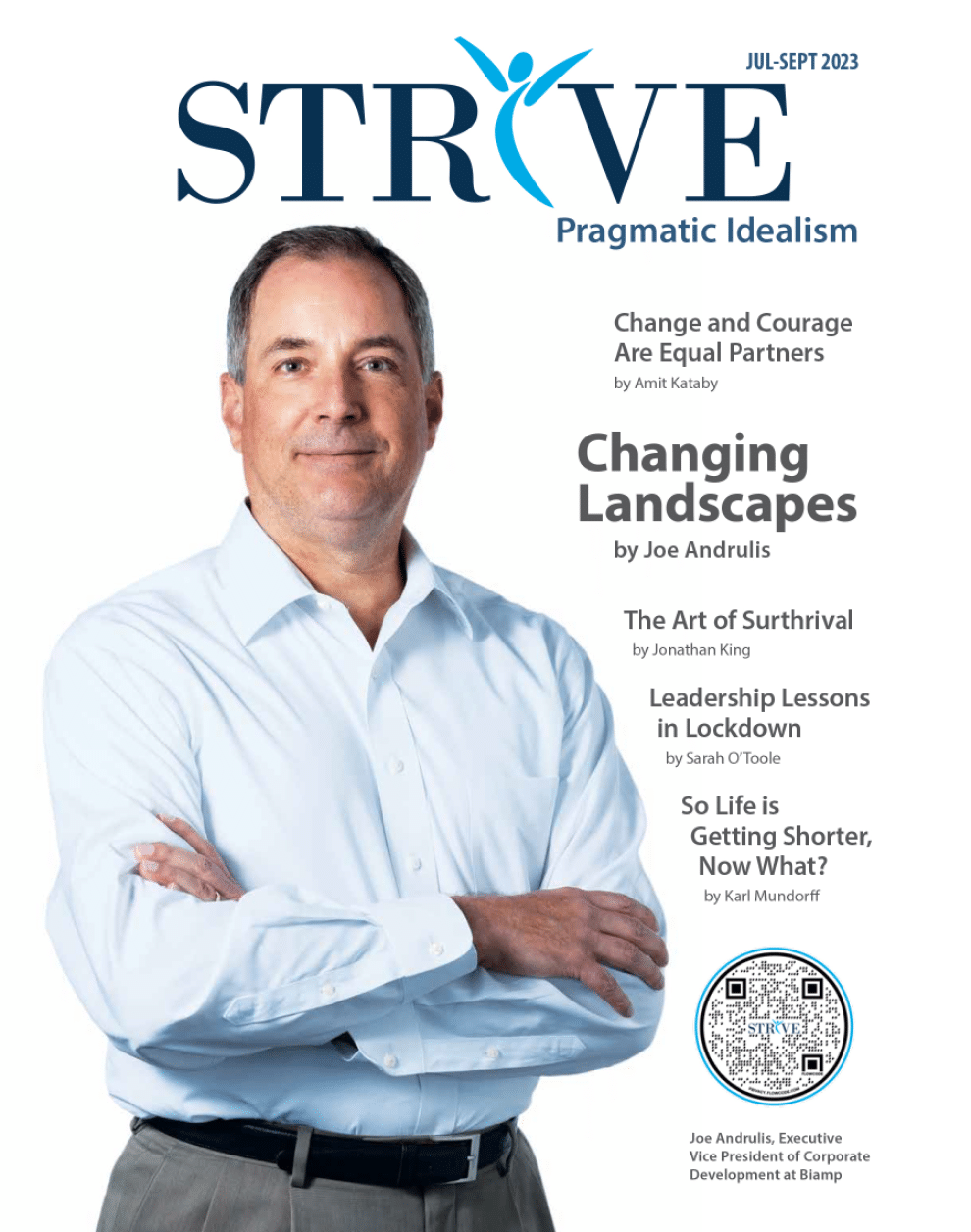I learned a long time ago that in order to move forward in a positive manner, we must take responsibility for our own shortcomings.
Nowhere in my entire career is this belief accentuated than in my years as a Sole Proprietor. The following narrative offers some insight into my work as an entrepreneur and hopefully, will serve to encourage you or otherwise give you some ideas about moving towards success and improvement.
Focus isn’t always a good thing
When I hung out my shingle, I had ten years of experience in my field and I had specialized in a few key areas. Therefore, I offered concentrated services reflective of my expertise as to “stick to my niche.” However, within a few years, I found my work didn’t take too much extra mental energy or thought. In reality, my “focus” had became an excuse for complacency. This posed a significant quandary as my clients were maturing and needed me to help them identify and solve systematic problems affecting the success of their growing business. I needed to accept the responsibility for my shortcoming and develop a broader knowledge of business in general. I found a few mentors in different fields, I joined professional organizations in industries other than my own, and I read. I read a lot – blogs, business journals, white papers – I read, read and read!

Sole proprietors find it difficult to expand
Scalability or “physical capacity” quickly became an issue as I could not serve clients who needed “more than just me.” This figurative and literal shortcoming required me to change my mindset and let go of what many sole proprietors hold so dear: turf and territory. Instead, I strived for affiliation and/or alignment with others. At the time, I was mentoring quite a few emerging professionals. In a leap of faith, I “trained” a few of them to be consultants themselves. Some would argue I trained my competition and while there is some truth to that, my investment resulted in a team of contractors “at the ready” to increase my physical capacity. As an added bonus, many of these new contractors developed expertise and found their passion in disciplines I had failed to sustain or develop. In addition, I collaborated with other consultants who chose expansion over turf. All of this enabled my small business to increase its services. As a bonus, I then had the headroom I needed to maneuver and develop a broader set of competencies for myself such as project management, organizational design and continuous improvement philosophies.

Freedom isn’t free
Sole proprietorship gave me the freedom to “do what I love.” I will presume many individuals hang out their shingle for this very reason. However, this freedom has a cost of “doing what I hate.” In my case, it was the financial work and because I despised it, I failed to make good accounting and bookkeeping a priority. This resulted in inefficient billing processes, terrible record keeping habits and processes, and painful and costly tax preparation. To solve this, I assessed my deficiencies, committed to change my habits and internal processes, and I outsourced my bookkeeping and taxes. This was, initially, very embarrassing and uncomfortable, and it was a costly expense that needed to be managed well.
Similar to my distaste in finance was my aversion to marketing and sales. While many assume and often joke about consultants being egotistical or prideful, the truth is many of us struggle with knowing our value. Subsequently, we find it taxing to pro-actively solicit a client, sell ourselves and/or price our services fairly. I was terrible at it and I struggled with making the call and/or approaching people at networking events. Often, I found myself doing what I referred to as “unplanned pro-bono” because I was not confident about my price and value. I knew I needed to take responsibility for this shortcoming but I didn’t think I could simply wish confidence and pride into the equation. Therefore, I took a different approach. I enjoy volunteering and was offering my services to many of my favorite non-profits each year. I began, as a trade, to ask for some exposure to their Board of Directors. This simple “ask” often resulted in future work. I also began using my professional and personal networks to solicit referrals and/or introductions. While I had been hesitant to ask for this type of help, I quickly discovered my network was happy to make the connection. Finally, I interviewed my current clients about my services, the results or outcomes of such, the investment and return, etc. This helped me realize the value of my services, which helped me adjust my fees.
It’s easy to become irrelevant
Many sole proprietors quickly realize how much they miss the benefits of working in an organization such as sufficient office space and equipment, IT support and team comradery. However, not being a part of the business operations poses another problem that goes beyond missing our employers. I believe many lone rangers lose touch with how the work is, can be or should be conducted; we become ignorant about the emerging technological advances while we comfortably advise from our favorite coffee shops. Whether it be advances in data management, automated or robotic processes or virtual solutions, we often miss it and, as such, we diminish our advice and counsel. For me, it was the speedy advance of collaborative technology. I found my knowledge to be as obsolete as the land line in my home office. I was unable to help my clients imagine how to better communicate, how to work efficiently when people were remote, how to effectively train a dispersed workforce or how to better engage a group during meetings and events. My ignorance of “how” collaborative technology better enables these things decreased my overall value to my client. To solve this problem, I went back to work part-time for a company who designed, sold, installed and serviced collaborative technology. While this was a significant investment of my time and resources, it was the only way I could take responsibility for my shortcoming. It was humbling to find myself in learning mode after all of these years but the return was worth the investment and I am now equipped to advise and offer appropriate and forward thinking technological solutions to my clients.
In summary,
- Focus isn’t always a good thing.
- Sole proprietors find it difficult to expand.
- Freedom isn’t free.
- It’s easy to become irrelevant.
Those don’t exactly make the case for sole proprietorship, do they? However, here’s the reality: Sole proprietorship epitomizes accountability, adaptation, flexibility, growth and courage.
If that is not taking responsibility for our shortcomings, I don’t know what it is.
This article first appeared in the January 2017 issue of STRIVE magazine.
About the Author
Heather Kinzie, SHRM-SCP, serves as the Chief Operating Officer for The STRIVE Group. With more than 20 years of organizational and workforce performance experience, Kinzie offers consulting, coaching, content development and training to clients. She oversees a team of experts who utilize a broad, systematic approach to problem solving and consultation. Recognizing the critical importance of leadership, communication and effective collaboration among teams, Kinzie is committed to helping clients improve communication, engagement and organizational performance.














































